第74章 Chapter 9 The Conservation of Archaic Traits(9)
As regards the intellectual or cognitive bent of the two directions of growth, the former may he characterized as the personal standpoint, of conation, qualitative relation, status, or worth; the latter as the impersonal standpoint, of sequence, quantitative relation, mechanical efficiency, or use.
The pecuniary employments call into action chiefly the former of these two ranges of aptitudes and propensities, and act selectively to conserve them in the population. The industrial employments, on the other hand, chiefly exercise the latter range, and act to conserve them. An exhaustive psychological analysis will show that each of these two ranges of aptitudes and propensities is but the multiform expression of a given temperamental bent. By force of the unity or singleness of the individual, the aptitudes, animus, and interests comprised in the first-named range belong together as expressions of a given variant of human nature. The like is true of the latter range.
The two may be conceived as alternative directions of human life, in such a way that a given individual inclines more or less consistently to the one or the other. The tendency of the pecuniary life is, in a general way, to conserve the barbarian temperament, but with the substitution of fraud and prudence, or administrative ability, in place of that predilection for physical damage that characterizes the early barbarian. This substitution of chicanery in place of devastation takes place only in an uncertain degree. Within the pecuniary employments the selective action runs pretty consistently in this direction, but the discipline of pecuniary life, outside the competition for gain, does not work consistently to the same effect. The discipline of modernlife in the consumption of time and goods does not act unequivocally to eliminate the aristocratic virtues or to foster the bourgeois virtues. The conventional scheme of decent living calls for a considerable exercise of the earlier barbarian traits. Some details of this traditional scheme of life, bearing on this point, have been noticed in earlier chapters under the head of leisure, and further details will be shown in later chapters.
From what has been said, it appears that the leisure-class life and the leisure-class scheme of life should further the conservation of the barbarian temperament; chiefly of the quasi-peaceable, or bourgeois, variant, but also in some measure of the predatory variant. In the absence of disturbing factors, therefore, it should be possible to trace a difference of temperament between the classes of society. The aristocratic and the bourgeois virtues -- that is to say the destructive and pecuniary traits -- should be found chiefly among the upper classes, and the industrial virtues -- that is to say the peaceable traits -- chiefly among the classes given to mechanical industry.
In a general and uncertain way this holds true, hut the test is not so readily applied nor so conclusive as might be wished.
There are several assignable reasons for its partial failure. All classes are in a measure engaged in the pecuniary struggle, and in all classes the possession of the pecuniary traits counts towards the success and survival of the individual. Wherever the pecuniary culture prevails, the selective process by which men's habits of thought are shaped, and by which the survival of rival lines of descent is decided, proceeds proximately on the basis of fitness for acquisition. Consequently, if it were not for the fact that pecuniary efficiency is on the whole incompatible with industrial efficiency, the selective action of all occupations would tend to the unmitigated dominance of the pecuniary temperament. The result would be the installation of what has been known as the "economic man," as the normal and definitive type of human nature. But the "economic man," whose only interest is the self-regarding one and whose only human trait is prudence is useless for the purposes of modern industry.